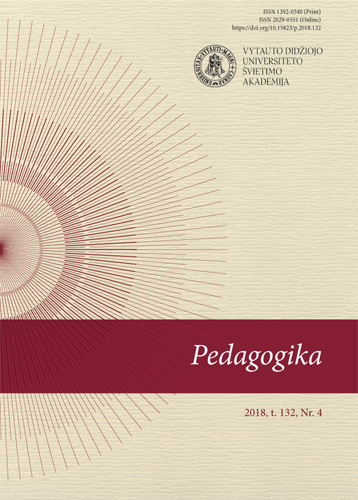Įtraukusis ugdymas nuo ikimokyklinio ugdymo iki aukštosios mokyklos. Tęstinumo poreikis
Inclusive Education from Pre-school Education to Higher Education: The Need for Continuity
Author(s): Dovilė LisauskienėSubject(s): Higher Education , Inclusive Education / Inclusion
Published by: Vytauto Didžiojo Universitetas
Keywords: inclusive education; theory of Paul Freire; higher education; an excluded person; accessibility;
Summary/Abstract: The aim of the paper is to find out the state of continuity of inclusive education from schools to higher education institutions considering persons who are excluded. Inclusive education is discussed in the context of Paul Freire’s transformational education concept in order to emphasize the power of inclusion of higher education. According to Freire, education is never neutral; it either domesticates learners like pets or frees them up to construct their lives and social reality. Paulo Freire’s aim wasfor socially vulnerable persons not to be passive but to perceive their social environment and be able to change it themselves. In this context, inclusive education is understood as a power tool for persons who experience difficulty in managing their own lives. Thus, continuity of inclusive education from pre-school education to higher education has a positive impact on the person’s future life. The analysis of scientific literature focused on the contexts where accessibility is a prerequisite for the successful development of inclusive education. In realizing the concept of inclusive education, it is necessary to develop a culture of inclusive education: the values and the positive attitudes of educators, helping specialists, community members is considered to be a basis. This paper consists of three parts. After introduction, Part One presents the concept of inclusive higher education, based on the concept of transformational education by Paul Freire, and reveals its relationship with accessibility of higher education. Part Two highlights the problems and opportunities for inclusion of marginalized groups into higher education emphasizing the continuity of inclusive education. Part Three, based on the successful experiences of Ireland and Israel, examines whether the Inclusive Education Concept by Freire is realized.
Journal: Pedagogika
- Issue Year: 132/2018
- Issue No: 4
- Page Range: 241-253
- Page Count: 13
- Language: Lithuanian

